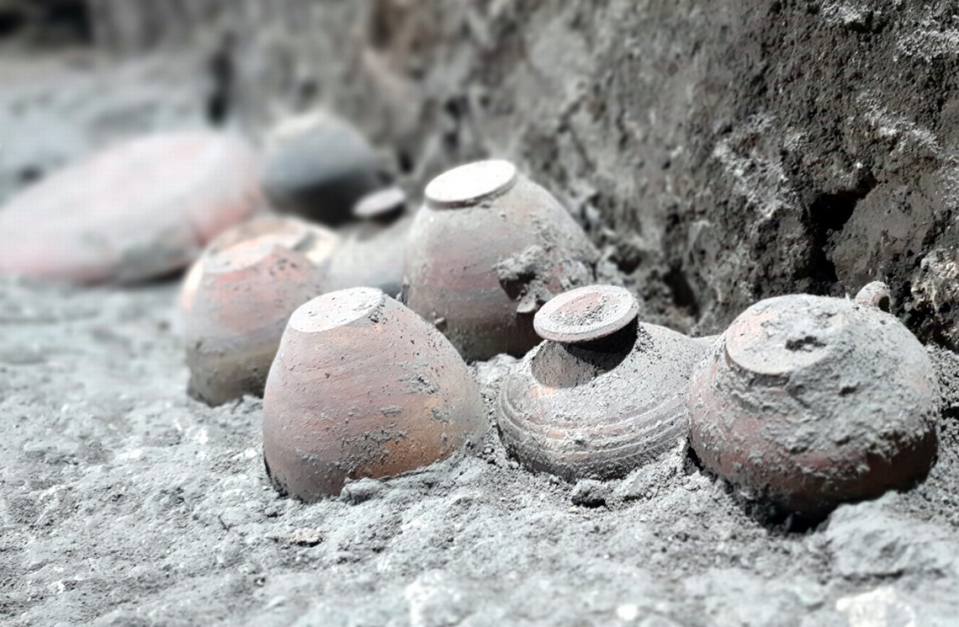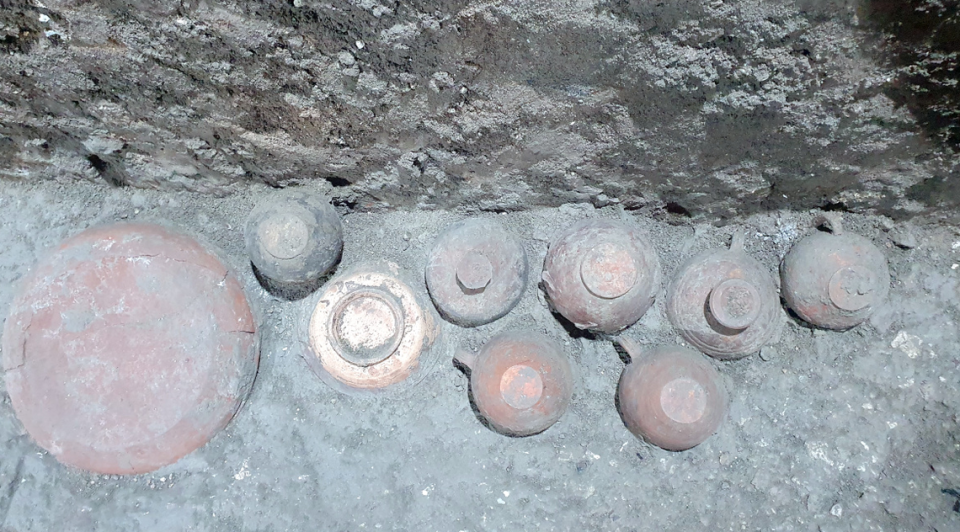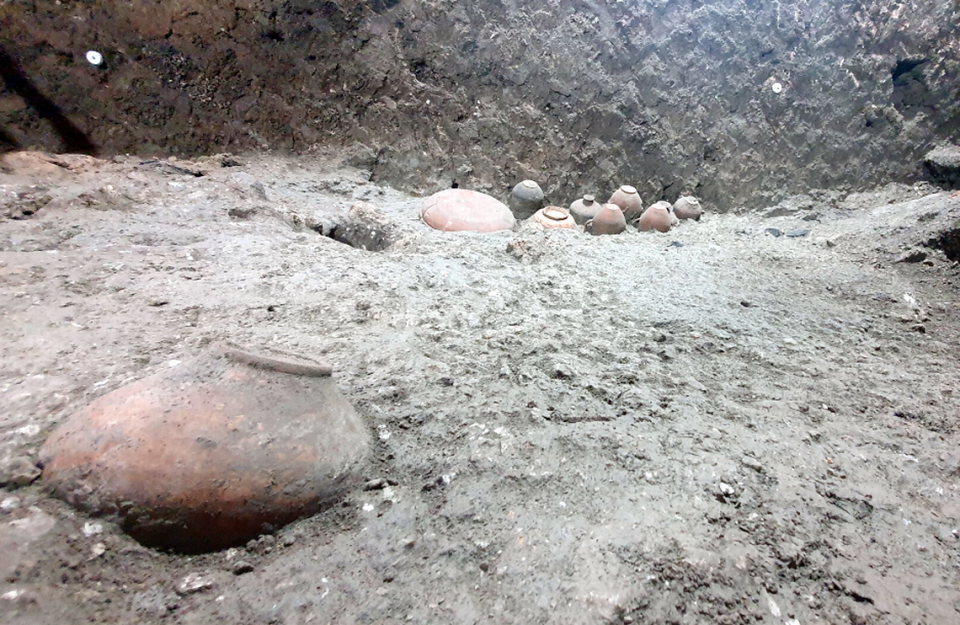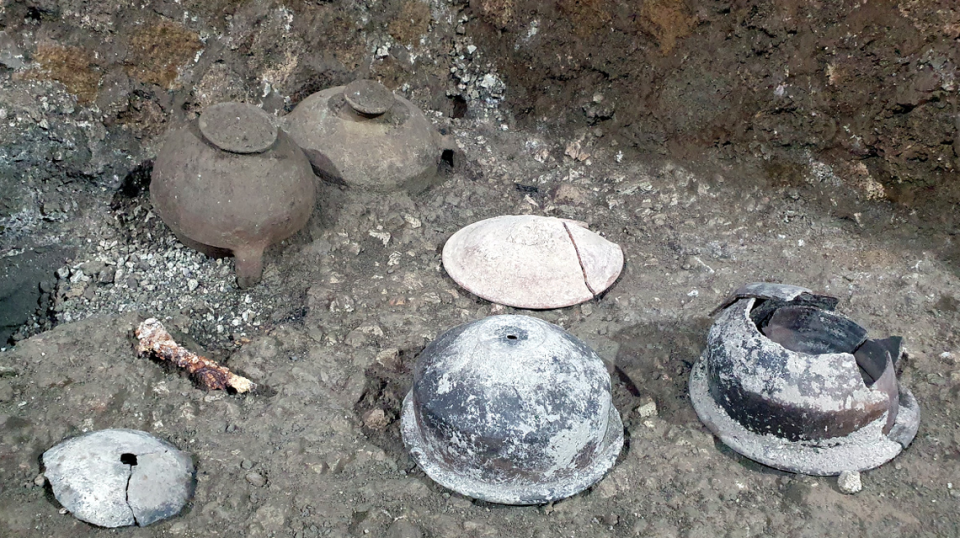2,000-year-old artifacts unearthed by archaeologists in Pompeii. See what they found
For nearly 2,000 years, the suburbs of Pompeii have been buried beneath the remains of Mount Vesuvius’ eruption.
Since the early 20th century, excavations of these surrounding areas have begun to reveal more about what life was like near Pompeii. Recently, archaeologists excavated more remains from what was once a servant’s chamber as they continue to explore the region.

Archaeologists from the Archaeological Park of Pompeii said in a news release that they unearthed a trove of dishware, ceramic and fire bowls at Civita Giuliana — a large residential complex less than a half mile northwest of Pompeii’s walls.

The artifacts were found upside down along the walls of what served as the servants’ quarters of the building.


The discovery gives experts more insight into daily life in the region — which was poorly documented and complicated by earlier illegal excavations and looting, according to the archaeologists.
Ongoing excavations at Civita Giuliana
Explorations of Civita Giuliana began in the early 1900s, according to the park. Archaeologists at the time discovered 15 rooms, including residential areas and work areas for things like storing food and wine.
A number of other discoveries have been made at the site since 2017, including a ceremonial chariot, a stable, the remains of three horses and a room used by slaves who worked at the villa.
Google Translate was used to translate the news release from the Archaeological Park of Pompeii.
2,000-year-old hall unearthed in Italian villa where Roman emperor and knights partied
Roman ‘dry cleaners’ shop — almost 2,000 years old — uncovered along Pompeii street
Roman aqueducts unearthed in Italian hillside. Take a look through the ancient tunnels


